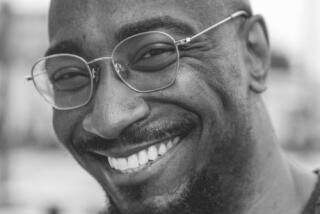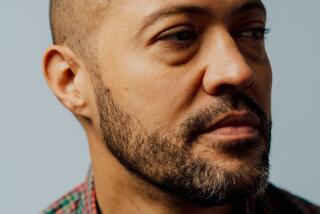‘Our Boston’: Reading for a city’s benefit, after marathon bombings
Boston was a rough-and-tumble city when I knew it in my teens and early 20s. It was, as Seth Mnookin suggests in “Our Boston: Writers Celebrate the City They Love” (Mariner: 354 pp., $16 paper), defined by “the Combat Zone and Filene’s Basement and the old un-air-conditioned Garden.”
Such landmarks appear throughout “Our Boston,” although the book is inspired by a more tragic, and more recent, bit of history: the bombings that shook the Boston Marathon earlier this year.
Edited by literary agent Andrew Blauner, and featuring essays by, among others, Susan Orlean, Andre Aciman, Dennis Lehane, Pagan Kennedy and Pico Iyer, it is a collective love letter to the city, but with a practical objective: For every copy sold, its publisher will donate $5 to the One Fund, which aids victims of the Boston Marathon bombings and their families.
This, of course, is a real-world example of how literature helps to cement, or showcase, community. It’s a model reminiscent of the Share Our Strength anthologies, which have benefited the Washington, D.C.-based nonprofit, and illustrate the way a book can have pragmatic impact on the world.
That’s a challenge all writers face: how or why their work is relevant, whether stories are ephemeral or, in some essential fashion, practical as well. “Our Boston” offers one answer to the question, built as it is around the premise that words matter, that they can be a restorative force.
Thus, we have Boston Globe columnist Kevin Cullen’s “Running Toward the Bombs,” which uses a chronology of the attack and its aftermath to get at the resilience of a city “[s]tronger than a bomb.”
Or Jabari Asim’s “Transplants,” which uses both “our country’s tortured racial history” and “Boston’s shameful past and intermittently difficult present” (“You’re the first black man I’ve ever known who actually wanted to move to Boston,” a colleague tells him when he announces his plans to relocate) to address the ways that “violence [transforms] an event from something joyous or ordinary into something horrific and deadly” -- a reference to the Boston Marathon bombings, yes, but also to a dark and untamed thread in all of us.
“Transplants” tells us something important about “Our Boston,” which is the intention to look at the city in all its complexity. The essays here (or most of them, anyway) are not puffy; Boston is too difficult for that. “The place was harsh and uncensored and thick with grimy tradition,” Pico Iyer writes in “The Classroom of the Real,” which is the final essay in the book. “[T]hat gave it a humanity, even a solidity, that other places I’d haunted often lacked.”
Iyer’s right, of course, which is the thing about Boston, that sense of heritage, good and bad. Blauner pays tribute to this both in the new pieces he gathers and in the handful of older writings he weaves throughout the book. Of these, none is more iconic than John Updike’s “Hub Fans Bid Kid Adieu,” originally published in the New Yorker in 1960, about Ted Williams’ final game at Fenway Park.
“The affair between Boston and Ted Williams,” Updike writes, “was no mere summer romance; it was a marriage composed of spats, mutual disappointments, and, toward the end, a mellowing hoard of shared memories.” That gets at the nature of it precisely: not just Williams but Boston, as well.
Boston is, after all, a small city, with a small city’s insecurities. But it’s also a city full of history, which it cannot -- does not want to -- forget.
“It’s not a tough town, or a resilient town, or a stodgy town, or a glittering town, or a small town, or a big town,” writes Joan Wickersham in “A City Not on a Hill,” “... It’s quotidian. It’s maddening and beloved and you wouldn’t want to live anywhere else.”
ALSO:
The little library in the neighborhood
Celebrating the endangered world of print for a good cause
More to Read
Sign up for our Book Club newsletter
Get the latest news, events and more from the Los Angeles Times Book Club, and help us get L.A. reading and talking.
You may occasionally receive promotional content from the Los Angeles Times.







